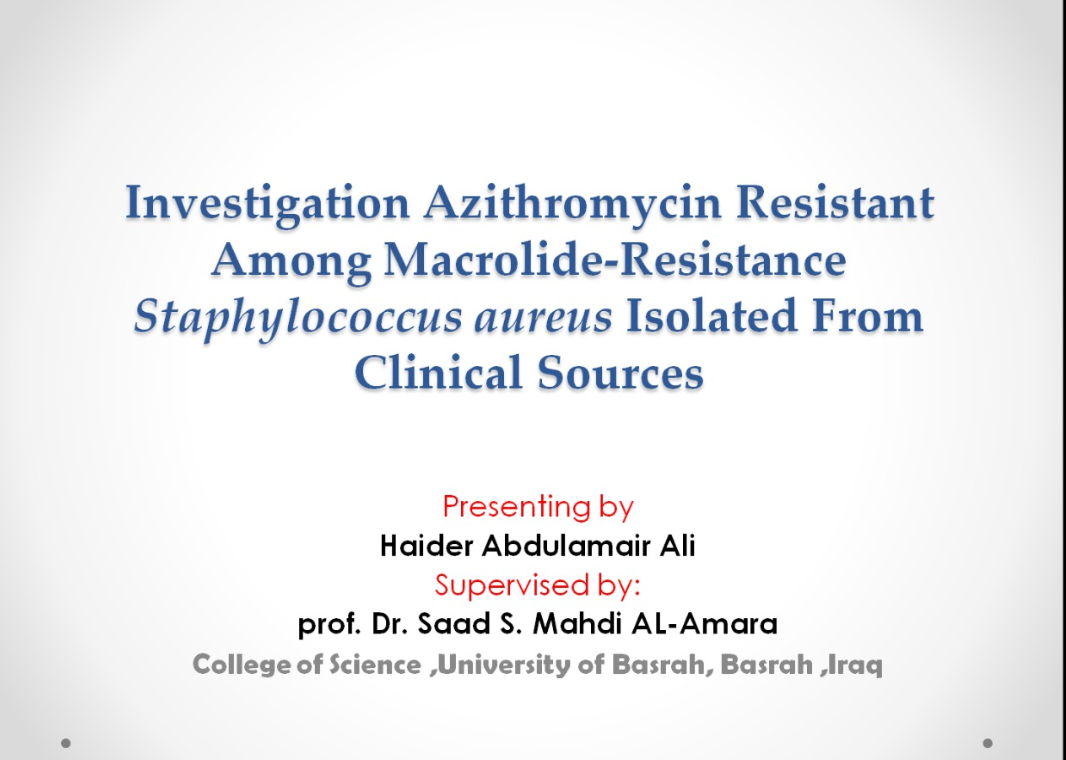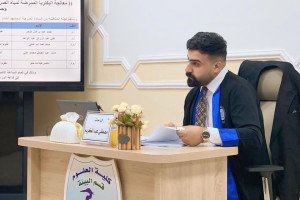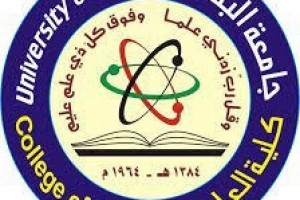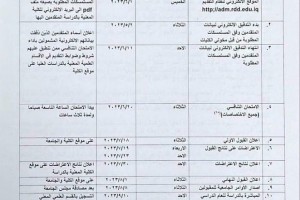
The College of Science at the University of Basrah organized a seminar entitled (Investigation Azithromycin Resistant among Macrolide-Resistance Staphylococcus aureus Isolated From Clinical Sources).
By the graduate student Haider Abdul ameer Ali.
The study aims: is to investigate the molecular characterization of clinical isolates of macrolide-resistant Staphylococcus aureus throughout.
Included: 1. Detect the Staphylococcus aureus isolated from clinical samples and identify the isolated strains by using molecular typing techniques like PCR and 16S rDNA technique. 2. Phenotypic and genotypic detection of the antibiotic patterns of methicillin resistant Staphylococcus aureus (MRSA) isolates. 3. Genotypic detection of the type of erythromycin ribosome methylase types (erm A, B, C, F and G) gene in Staphylococcus aureus isolates.
4. Genotypic detection of the type of the macrolide streptogramin resistance (msrA/B) gene in S. aureus isolates.
Recommended: 1. Regional surveillance programs and epidemiological studies on the reasons for the spread of antibiotic resistance and the various resistance mechanisms to design better treatment and prevention strategies.
2. Adoption of the use of molecular methods in the investigation and diagnosis of the macrolide-resistant S. aureus in the Microbiology laboratory of Iraqi Hospitals in general and Basrah province in particular.
3. Adoption of the use of D-test and Vitek 2 system in the investigation and diagnosis of the inducible and constituted clindamycin resistance between the S.aureus in hospitals of Iraq in general and Basrah province in particular.
4. Additional studies are needed to investigate other staphylococcus species that produce methicillin-resistant and macrolide resistant between other species of Staphylococcus.
5. Additional studies are needed to determine the different types of erm genes and msr genes that are frequently isolated from Iraqi patients.
6. Constantly working on the DNA sequence examination to provide GenBank with the largest amount of information, in order to design the primers that cover the largest number of variants in the specific gene, As well as, mutations detection and studying their consequences.



.jpeg)
.jpeg)



